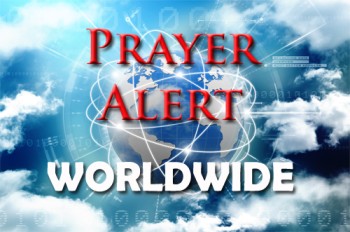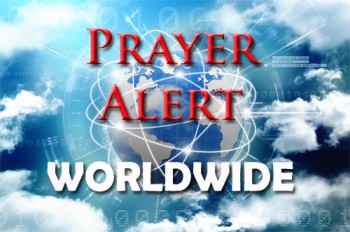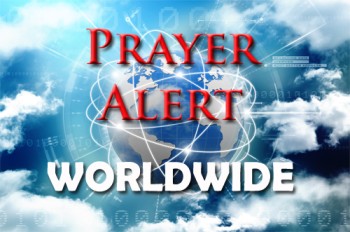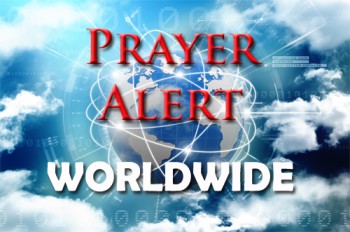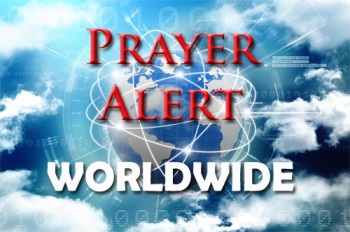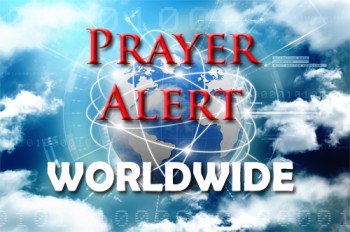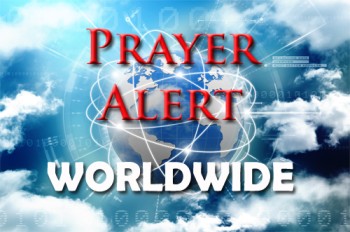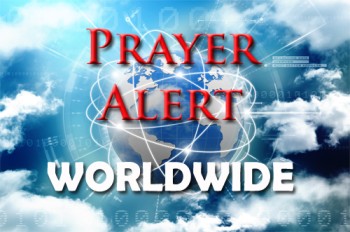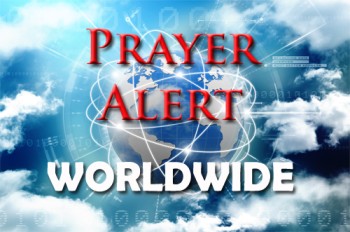Displaying items by tag: Nigeria
Nigeria: over 200 dead after massacres in Muslim-majority villages
A brutal massacre in Nigeria’s Kwara state left more than two hundred dead after gunmen attacked two Muslim-majority villages for rejecting extremist teaching. Witnesses said the attackers arrived on motorcycles, entered a mosque and shot worshippers, then moved house to house killing, kidnapping and burning residents. Many victims were tied before execution, and entire families were wiped out. Survivors fled, leaving only a few men to bury bodies among destroyed homes. Authorities blamed Boko Haram-linked militants, and the army deployed troops while local groups struggled to respond. The violence reflects Nigeria’s wider insurgency, where armed factions target both Muslims and Christians, spreading fear across communities. International partners are now providing intelligence support, yet the tragedy shows the urgent need for protection, reconciliation and healing for traumatised survivors who have lost loved ones and livelihoods. In related news, the USA is to send two hundred soldiers to Nigeria to train local forces: see Nigeria’s military recently claimed to have killed a senior Boko Haram commander and ten other militants in Borno.
Nigeria: mass kidnapping from a Catholic school
On 21 November, at St Mary’s Catholic School in Niger state, more than three hundred students were abducted in a mass kidnapping - the worst such attack recorded against a Catholic school in the region. Although fifty children managed to escape and have been reunited with their families, 253 students and twelve staff members remain captive. Parents of missing children are traumatised, anxiously searching for any sign of their loved ones. This kidnapping follows several recent attacks, including the abduction of over two dozen schoolgirls in Kebbi and of 38 people attending a church service in Kwara state (though these have now been rescued). These incidents come only a few weeks after Donald Trump spoke of ‘Christian genocide’, which the government denied (see) President Bola Tinubu has reassigned VIPs' bodyguards to core policing duties and ordered the recruitment of 30,000 new police officers, acknowledging that ‘many parts of Nigeria’ are not adequately policed. Church leaders and global voices, including the Pope, have called for urgent action to rescue the hostages and restore safety for Nigeria’s citizens. Many feel that the West doesn’t seem to care about this ongoing level of terrorism: see
Nigeria: danger of mass starvation in 2026
Northern Nigeria is facing a rapidly escalating hunger emergency as militant attacks make it too dangerous for farmers to work their land. According to a new World Food Programme (WFP) report, Nigeria is on track to experience the worst-ever food crisis in Africa next year, with an estimated 35 million people expected to suffer severe hunger. In Borno state, the centre of ongoing insurgencies, at least 15,000 people are projected to face catastrophic hunger including famine-like conditions, as it is now classified at the highest level of food crisis severity. Violence from armed groups has spread, including recent kidnappings and the arrival of an al-Qaeda-linked faction claiming attacks in Nigeria for the first time. The crisis has been intensified by a major reduction in humanitarian aid following Donald Trump’s decision to withdraw US funding from the WFP. Without renewed support, millions may be left without critical food assistance, deepening instability and human suffering across the region.
Nigeria: Trump’s military threats over ‘Christian genocide’
Donald Trump’s threats to cut aid and launch military strikes against Nigeria over alleged ‘Christian genocide’, while resonating with US evangelicals, might misrepresent and oversimplify the country’s complex crisis. Nigeria’s conflicts, spanning insurgency, banditry, and communal clashes, are not purely religious but deeply rooted in ethnicity, identity, and government failures. Analysts warn that US intervention, whether through sanctions or drone strikes, could devastate civilians already trapped between terrorists and insecurity. History shows that ‘precision’ attacks often result in innocent casualties, worsening humanitarian crises. Arguably, Trump’s decision to freeze most foreign assistance programmes have exacerbated the problem, resulting in job losses for about 28,000 health workers and pushing vulnerable Nigerians deeper into hardship. His threats pose a dilemma for President Tinubu. If he cooperates, he might appear weak, but defying Washington might risk economic and military pain.
Nigeria and South Africa removed from global ‘grey list’
Nigeria, South Africa, Mozambique, and Burkina Faso have been removed from the Financial Action Task Force’s (FATF’s) global ‘grey list’, marking a crucial milestone in Africa’s financial integrity efforts. Once seen as high-risk for money laundering and terrorist financing, these nations have implemented sweeping reforms which have restored investor confidence and strengthened global partnerships. Nigeria’s tighter oversight of mobile money and anti-money-laundering laws, and South Africa’s expanded powers for financial regulators, have begun rebuilding trust in governance and transparency. Mozambique and Burkina Faso have improved their ability to track illicit cross-border transactions linked to armed groups. The delisting signals international recognition of progress - but it also serves as a reminder that vigilance and accountability must continue. For ordinary citizens, these reforms bring promise of greater economic stability, job creation, and stronger consumer protection: neighbouring countries could experience a confidence rebound, especially in attracting greater international investment.
Nigeria: new chapter in global fuel trade with first export to USA
The massive 650,000-barrel-per-day Dangote refinery has delivered its first US gasoline export, signalling a new chapter in global fuel trade. The tanker Gemini Pearl discharged about 320,000 barrels of gasoline at Sunoco’s Linden facility in New York harbour, with Vitol purchasing the cargo from Switzerland-based Mocoh Oil and selling most of it to Sunoco. The shipment meets stringent US motor fuel standards, a key milestone for the refinery after many startup delays. Two more USA-bound cargoes are en route. While these exports demonstrate Dangote’s potential to reshape energy flows and reduce Nigeria’s reliance on fuel imports, further US deliveries may pause soon because the refinery’s gasoline unit is expected to undergo two to three months of repairs, according to an industry monitor. Meanwhile, the refinery has also begun direct fuel supplies to marketers in Nigeria, which potentially could put an end to the country's shortages. See
Nigeria: women vaccinators lead the battle against polio
In a camp just outside Lagos, female vaccinators like Eucharia and Aishatu are leading the charge against polio. Though Nigeria was declared free of wild poliovirus in 2020, the country continues to battle outbreaks of vaccine-derived polio (cVDPV), especially in under-immunised and conflict-affected regions. Women have proved indispensable in this effort, often gaining household access where male health workers cannot due to cultural or security concerns. Despite facing mistrust, misinformation, and physical danger, these women build trust through persistence, community dialogue, and personal sacrifice. Many supplement their modest income through small businesses, unintentionally turning polio campaigns into a platform for female empowerment and entrepreneurship. Their efforts have not only improved vaccination rates but also strengthened public health infrastructure and spurred broader social change. While wild polio is now endemic only in Pakistan and Afghanistan, Nigeria’s experience offers vital lessons. Its fight against polio, led by women, supported by community trust, and bolstered by innovative strategies, has reshaped how public health can be delivered in fragile settings.
Nigeria: illegal export of over 1,600 live birds prevented
Customs officials have intercepted a shipment of over 1,620 live parrots and canaries at Lagos' international airport, bound for Kuwait without the required permits. The birds, including protected ring-necked parakeets and yellow-fronted canaries, were seized during a routine inspection on 31 July. A spokesman said that the airport remains under strict surveillance to prevent illegal trafficking. As a signatory to the Convention on International Trade in Endangered Species (CITES), Nigeria must ensure such exports have legal documentation, which this shipment did not have. Authorities are investigating those behind the attempted export. The rescued birds were handed over to the National Park Service for rehabilitation. Conservationists view this seizure as a major success in Nigeria’s ongoing struggle against wildlife trafficking. Although the country is a key transit hub due to porous borders, widespread corruption, and weak enforcement, the interception is a sign of positive change in the fight against illegal wildlife trade, which globally generates $8–10 billion annually.
Nigeria: ‘We live in fear’: five Christians killed during Bible study
Five Christians were killed and three others injured during a Bible study on Friday in Kaduna State by armed Fulani extremists. The victims, members of the Evangelical Church Winning All (ECWA), had gathered peacefully when the attackers struck. The killings are part of a continuing pattern of violent persecution targeting Christian farming communities in the Middle Belt region, where believers live in constant fear. The area has seen 110 kidnappings in the past six months, with many communities unable to sleep safely or work their land. Despite persistent attacks, the Nigerian government is widely criticised for its inaction. International voices have called for Nigeria to be redesignated as a Country of Particular Concern. While this designation was made under the Trump administration in 2020, it was removed by the Biden administration in 2021 without explanation, a move condemned by religious freedom advocates. Nigeria remains the deadliest country for Christians globally, with 90% of Christian martyrs in 2022 killed there.
Nigeria: authorities seek to combat oil theft
In the Niger Delta, rampant oil theft continues to threaten local livelihoods and the national economy. Armed groups siphon crude oil from pipelines in the region, often operating with impunity and even security cover. These activities cause environmental devastation, health crises, and economic losses. In 2022, Nigeria lost $23 billion to oil theft, so that it lost its position as Africa's top oil exporter. The authorities are committed to fighting this problem by deploying gunboats, engaging vigilantes, and supporting the navy. Increased oil production, now averaging 1.8 million barrels per day, has been attributed to these efforts. However, poverty and unemployment continue to drive pipeline vandalism. Nigeria's inflation rate, worsened by a devalued naira, remains high, but there is official optimism that rising oil output will stabilise the economy.
